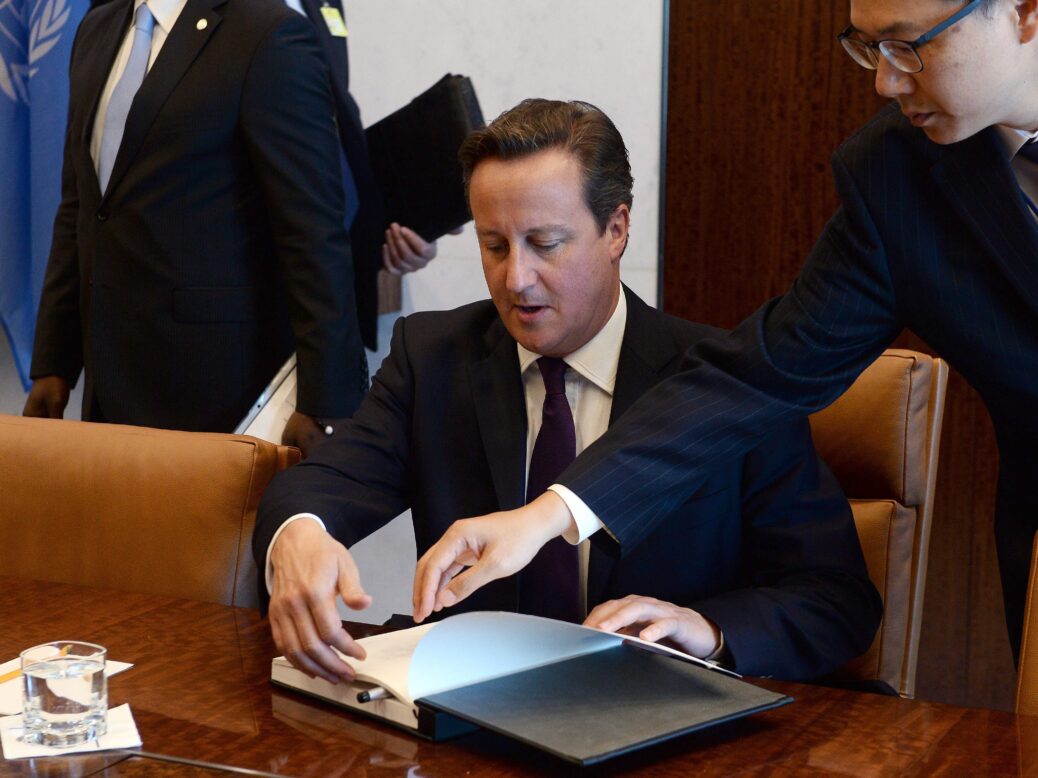
The BBC is reporting that parliament is expected to be recalled on Friday to consider the UK’s role in airstrikes against Islamic State (also known as Isis).
David Cameron, who is in the US attending the United Nations General Assembly, is responding to the first anti-IS airstrikes by the US, which distracted attention from Labour’s conference yesterday.
These people want to kill us. They’ve got us in their sights and we have to put together this coalition. . . to make sure that we ultimately destroy this evil organisation.
He insisted that, “you cannot opt out of” the fight against the militant group.
There are also reports that Iraq, while at the UN, will formally request that the UK joins France and the US in launching airstrikes against IS.
The Prime Minister is set to ask MPs on Friday to approve Britain’s action in the region against the extremist fighters. It was a little over a year ago that the PM lost a Commons vote on military intervention in Syria, and Ed Miliband said that parliament had spoken “for the people of Britain”. So now Labour’s position on IS is being very closely scrutinised. However, it appears that the Labour leader is likely to back Cameron’s plan for airstrikes. He told the BBC this morning that he is “open to the possibility” of supporting action:
How will I judge any proposal? Whether Britain can have an effect, whether we can succeed and whether it is legitimate and lawful. But I am open to the possibility.
Before I commit British combat troops I want to look at what the proposition is and the nature of that proposition.
This may seem harmonious so far, but a difficulty lies in the difference between intervening in Iraq and intervening in Syria. The government of the former is set to request that Cameron gets involved, but Syria – under the regime of Bashar al-Assad – is a whole other question.



